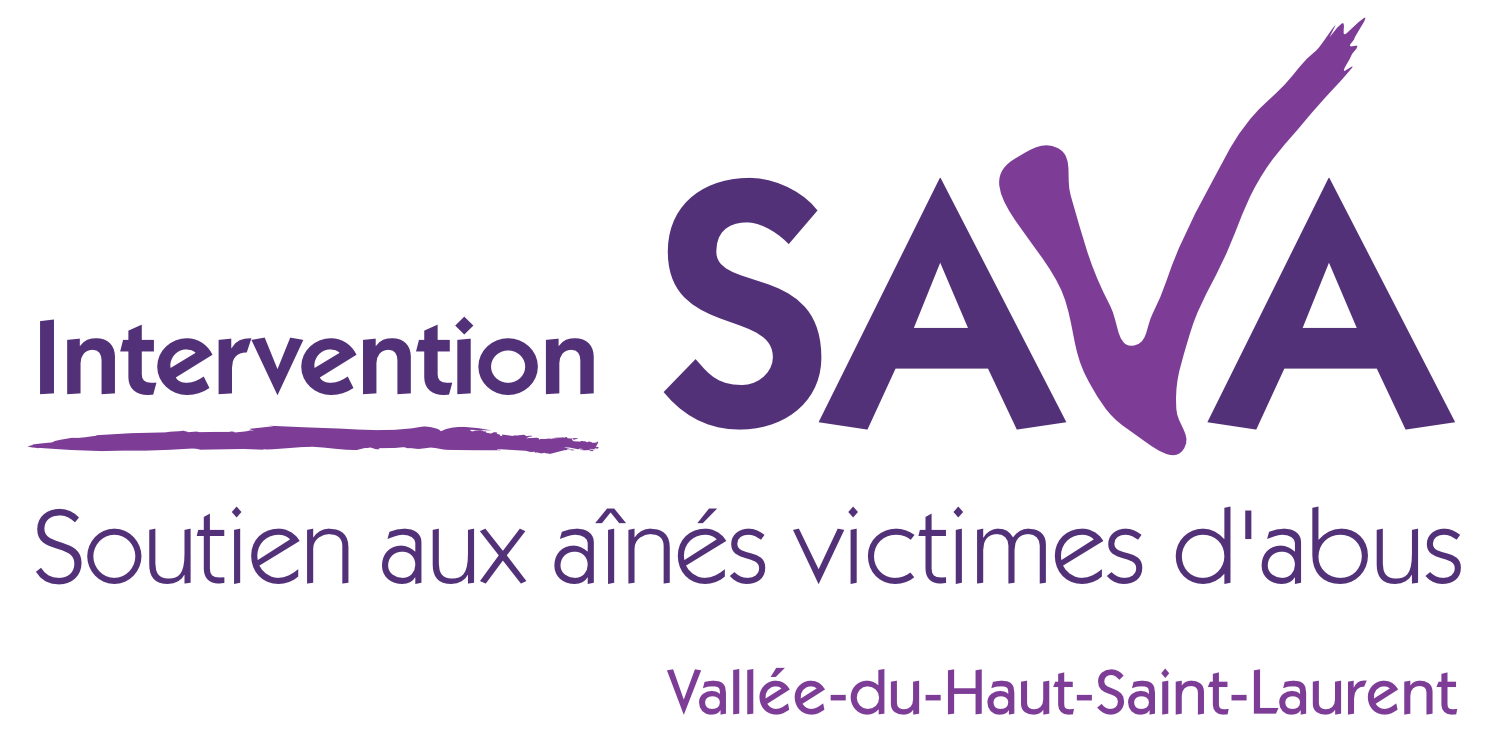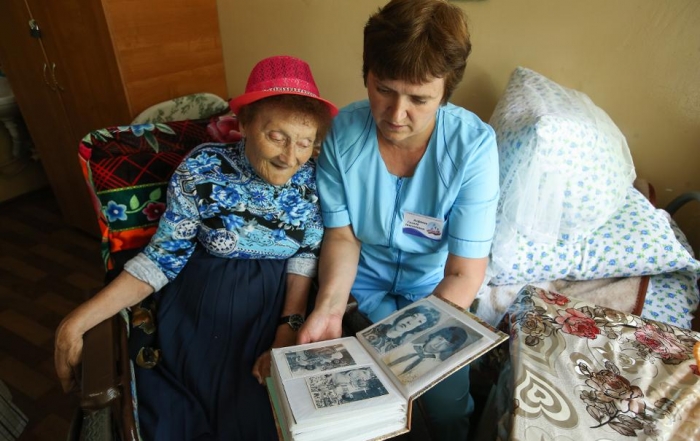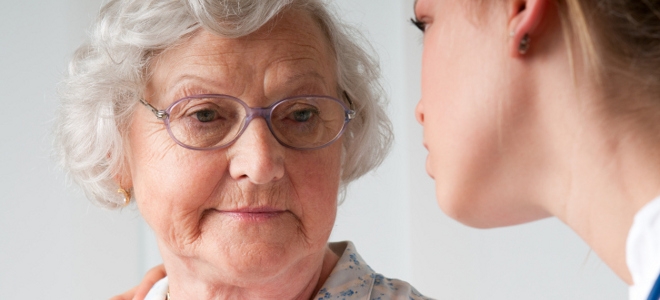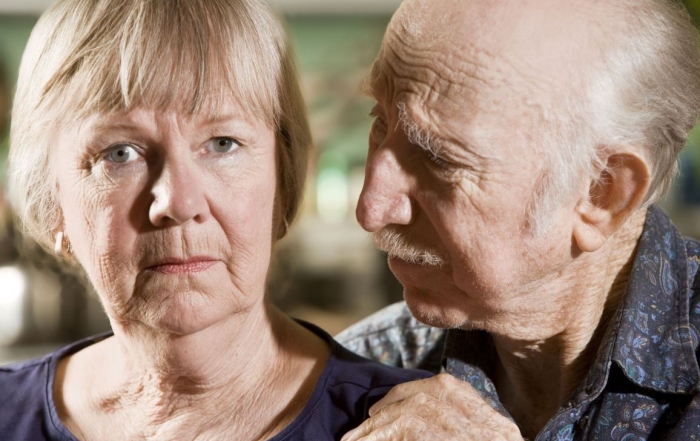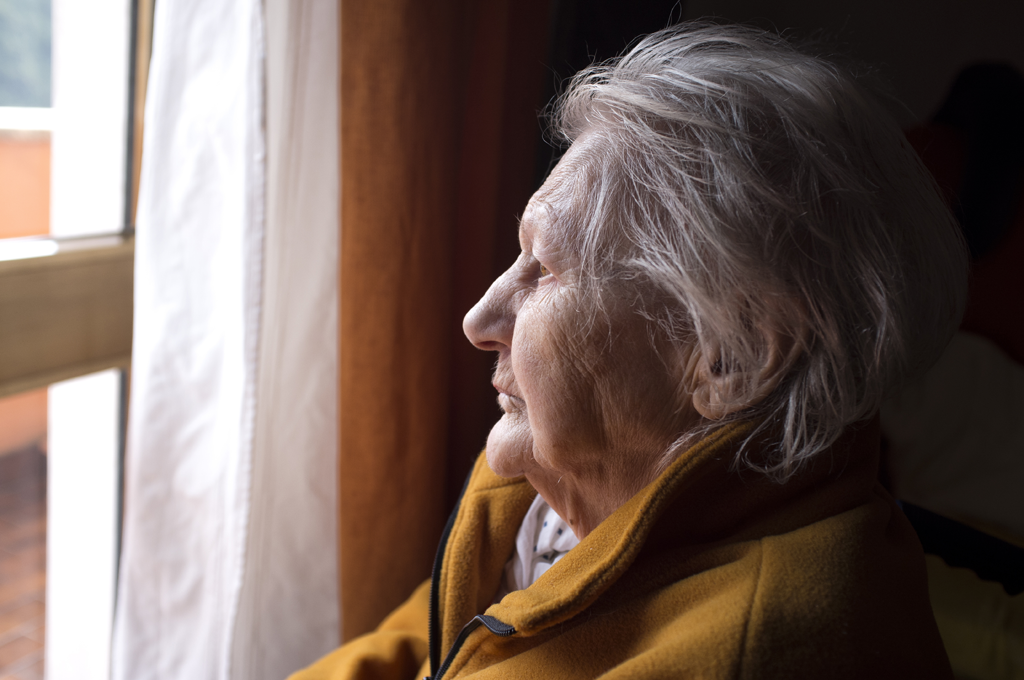
ACT NOW!
The Support for Abused Elder Abuse Project in the Vallée-du-Haut-St-Laurent (SAVA-VHSL) aims to counter maltreatment of seniors in the region. If you or someone close to you is a victim of abuse, this site can refer you to resources that can help you.
What is abuse?
There is abuse when a singular or repetitive action, or lack of appropriate action, intentional or otherwise, occurs in a relationship where there should be trust, and that causes harm or distress to an elderly person.
Trailer of the SAVA (support for the victims of elderly abuse) capsules to inform and raise awareness to counter mistreatment against the elderly and promote well-treatment
To participate in an information and awareness-raising activity
If you are interested to participate in an information and awareness-raising activity to better understand what is mistreatment and well-treatment towards the elderly, we invite you to contact us for more information:
Phone: 450 424-0111 ext. 233
Email: intervenantesava1@legraves.com
Identify the abuse
Forms of abuse
Violence: Maltreating an elderly person or have them act against their will, using force and/or intimidation.
Negligence: Neglecting an elderly person, especially through lack of appropriate action to meet their needs.
The intent of the abuser
Intentional abuse: The abuser wants to hurt the elderly person.
Unintentional abuse: The abuser does not want to cause harm or does not understand the harm it causes.
Caution: The signs and the situation should always be evaluated to avoid hasty conclusions or labels.
Victim of what type of abuse?
Psychological abuse
Gestures, words or attitudes that constitute an impairment of well-being or psychological integrity.
Violence: Emotional blackmail, manipulation, humiliation, insults, infantilization, denigration, verbal and non-verbal threats, deprivation of power, oversight of activities, etc.
Neglect: Rejection, indifference, social isolation, etc.
Signs: Fear, anxiety, depression, withdrawal, hesitancy to talk openly, mistrust, fearful interaction with one or more people, suicidal ideation, rapid decline in cognitive abilities, suicide, etc.
Physical abuse
Inappropriate gestures or actions, or lack of appropriate action, that affect well-being or physical integrity.
Violence: Shoving, rudeness, hitting, burning, forced feeding, inadequate medication administration, improper use of restraints (physical or chemical), etc.
Neglect: Deprivation of reasonable conditions of comfort or safety;lack of assistance with feeding, dressing, hygiene or medication when one is responsible for someone in a situation of dependency, etc.
Signs: Bruising, wounds, weight loss, deterioration of health, lack of hygiene, undue delay in change of underwear, skin conditions, unsanitary living environment, atrophy, restraint, early or suspicious death, etc.
Sexual abuse
Unspoken gestures, actions, words or attitudes of sexual connotations that undermine sexual well-being, integrity or gender identity.
Violence: Suggestive words or phrases, jokes or insults with sexual connotations, promiscuity, exhibitionist behavior, sexual assault (unwanted touching or caressing, forced sexual relations), etc.
Neglect: Deprivation of privacy, non-recognition or denial of sexuality and sexual orientation, etc.
Signs: Infections, genital sores, anal sores, anxiety during examinations or care, mistrust, withdrawal, depression, sexual disinhibition, suddenly very sexualized speech, denial of the sexual life of seniors, etc.
Material or financial abuse
Fraudulent, illegal, unauthorized or dishonest collection or use of the person’s property or legal documents, lack of information or financial or legal misinformation.
Violence: Pressure to modify will, use of bank card without consent, excessive price charged for services rendered, misappropriation of funds or property, identity theft, etc.
Neglect: Not managing property in the interest of the person or failure to provide the necessary property when in charge; not questioning a person’s ability, understanding or financial literacy, etc.
Signs: Unusual bank transactions, disappearance of valuables, lack of money for current expenses, limited access to information on the management of the person’s property, etc.
Violation of rights
Any infringement of individual and social rights and freedoms.
Violence: Imposition of medical treatment, denial of the right to choose, to vote, to enjoy one’s intimacy, to take risks, to receive telephone calls or visits, to practice one’s religion, to live according to one’s sexual orientation, etc.
Neglect: No information or misinformation about one’s rights, lack of assistance in the exercise of one’s rights, not recognizing one’s abilities, etc.
Signs: Interference with the senior’s participation in their choices and the decisions that concern them, lack of respect of the decisions made by the senior, answers provided by a loved one to questions addressed to the senior, restriction of visits or access to information, isolation, complaints, etc.
Organizational abuse (care and services)
Any prejudicial situation created or tolerated by the procedures of the institutions responsible for providing care and services, which jeopardizes the exercise of the rights and freedoms of the users.
Violence: Organizational conditions or practices that lead to the non-respect of user choices or rights, lack of personalization of care, lack of adaptation of the institution and services to the individual, etc.
Negligence: Lack of resources (budget, time, staff) and services, inadequate training of staff, etc.
Signs: Reducing the individual to a number, more or less rigid care schedules, unmet needs, failure to provide meal assistance or hygiene care, undue delay in changing underwear, wounds, deterioration of health status, inadequate care, complaints, etc.
Ageism
Discrimination on grounds of age, through hostile or negative attitudes, prejudicial actions or social exclusion.
Violence: Imposing restrictions or social norms due to age, reduced accessibility to certain resources, prejudice, infantilization, contempt, etc.
Neglect: Indifference to ageist practices or remarks when they’re witnessed, etc.
Signs: Non-recognition of rights, skills or knowledge, “little lady,” etc.
Witness or victim of abuse?
Witness
If you are a witness or believe that you are witnessing a situation of abuse, do not hesitate to contact a resource who can guide you. It is important to respect the choices of the person dealing with abuse but you do not have to be alone with a secret that makes you unhappy.
- Be attentive
- Do not put yourself in any danger, ensure your safety and ask for help
Victim
If you feel you are experiencing a situation of abuse, the first step in improving the situation is to talk to someone. It can be a specialized resource but also someone around you who you trust. Do not remain alone with the situation and remember that you are not responsible for it. Do not hesitate to contact a resource who can give you information or guide you in the steps you wish to take.



